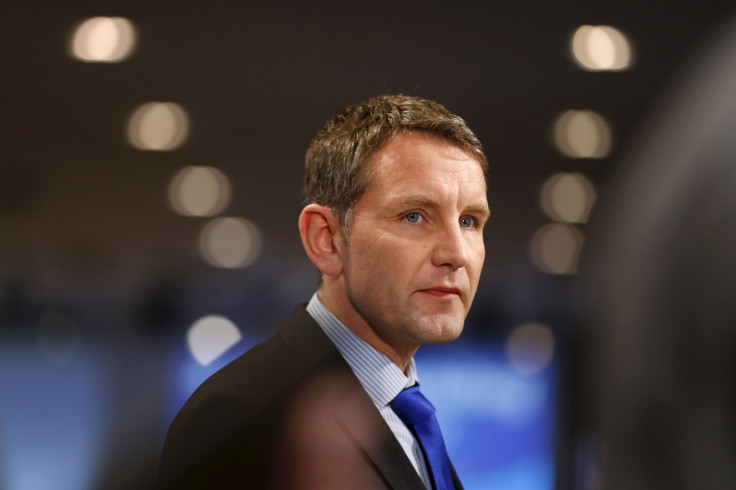Germany Far Right Leader's Holocaust Comments Criticized By Party Ahead Of 2017 Elections

Party leadership for far-right Alternative for Germany (AfD) announced Monday that it would discipline one of its regional leaders after he publicly criticized Berlin's Holocaust Memorial.
Bjoern Hoecke, head of AfD in the eastern Thuringia state, made the controversial comments during a speech last week to a party youth group in Dresden. Referring to Germany's national Holocaust Memorial in Berlin, Hoecke slammed what he referred to as Germany's "stupid politics of coming to grips with the past." The speech circulated on social media and caused outrage among many sectors of German society, which remains sensitive to its World War II history.
"Germans are the only people in the world who plant a monument of shame in the heart of the capital," Hoecke said.
In response to the remarks, AfD chair Frauke Petry last week called Hoecke "a burden for the party" and hinted the state leader may be expelled. Eight out of 11 party members attending a meeting of the party's executive committee in Berlin called for Petry's removal, according to Politico. AfD leadership ultimately decided to keep Hoecke after deliberating for three hours by telephone, despite concluding that he had "damaged the party's image," Germany's public media outlet Deutsche Welle reported. The conference called for unspecified disciplinary actions to be taken against Hoecke.
Members of the German federal government and political organizations have criticized what they perceive as an increasingly bold attitude of the nation's far right. Thomas Kruger, president of the Federal Agency for Civic Education, said Hoecke's comments were indicative of a "media test" through which AfD was gauging how far it could take its rhetoric.
"Society is now called upon to take action and to draw clear red lines for the public discourse," Krüger told German news station Welt N24 Friday.
Berlin's Holocaust Memorial, officially called "Memorial to the Murdered Jews of Europe," was designed by architect Peter Eisenman and opened in 2005 to commemorate 60 years since Nazi Germany led a systematic campaign of deportation, imprisonment and extermination that killed an estimated 6 million Jews and millions of other persecuted communities including communists, homosexuals and the disabled.
© Copyright IBTimes 2024. All rights reserved.





















